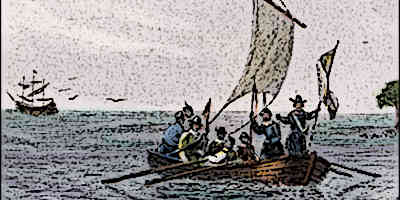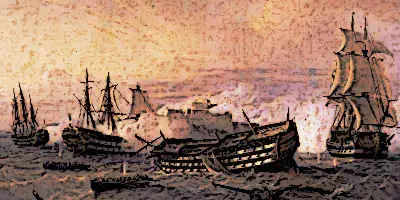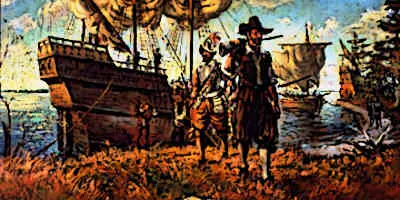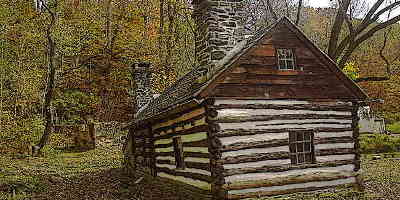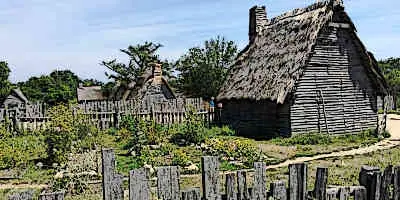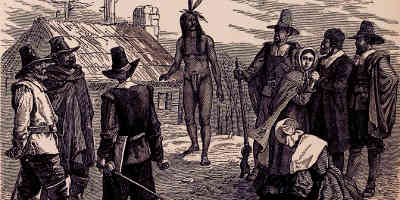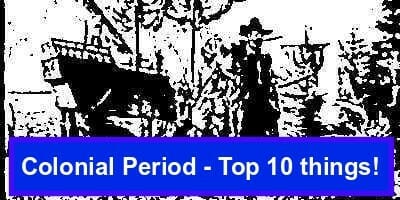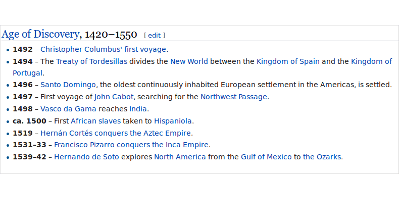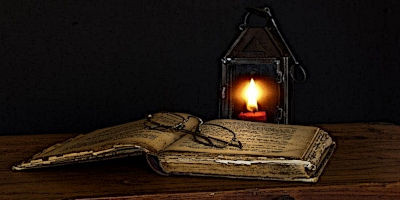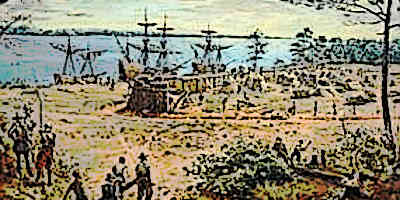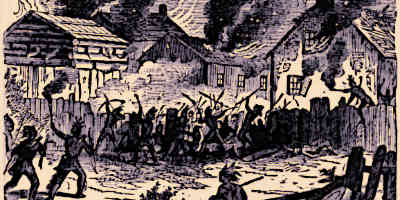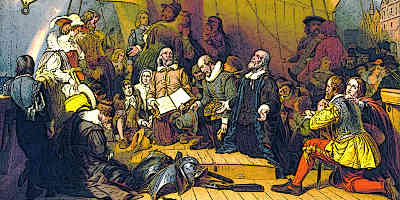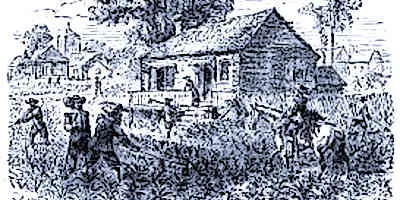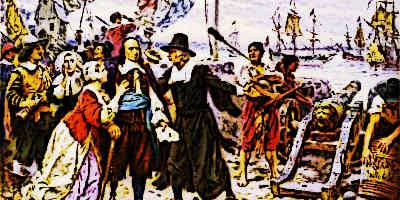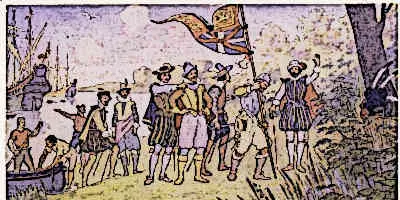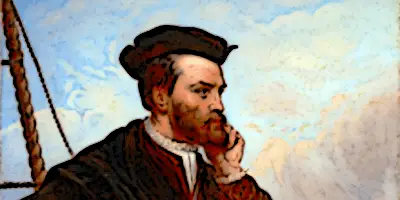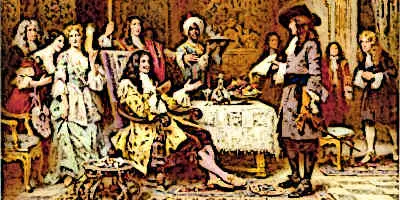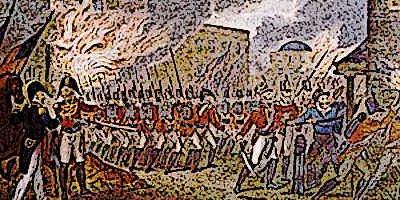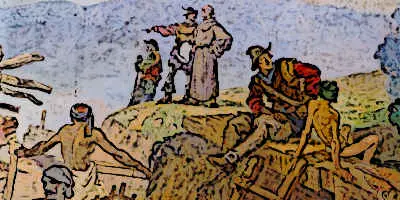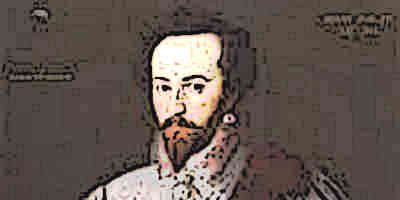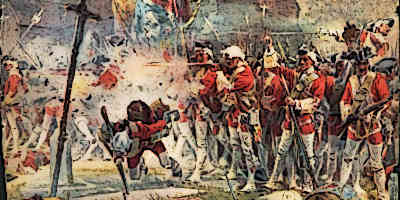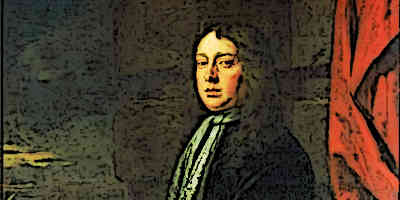13 Colonies
The Thirteen colonies were a group of colonies from Britain that settled in North America Read more about the 13 Colonies >>
British and French colonies
British and French colonists settled in North America along the east coast and Hudson Bay Read more about the British and French colonies >>
British Colonization
Successful British colonization of the Americas began in the early 17th century Read more about the British Colonization >>
Colonial Homes
Colonial Housing - Discover Colonial Housing and Homes of the Early European Colonists! Read more about the Colonial Homes >>
Colonial Houses
During the colonial period of America, there were colonial houses of many different designs and styles. Read more about the Colonial Houses >>
Colonial Native Americans
Native Americans during the Colonial Period - Important events and wars involving Native Americans Read more about the Colonial Native Americans >>
Colonial Period – Top 10
Top 10 Things You Really Should Know about the Colonial Period and the Colonists Read more about the Colonial Period – Top 10 >>
Colonial Period Timeline
The Colonial Period extends from 1607 all the way to the birth of United States in 1776 Read more about the Colonial Period Timeline >>
Colonial Period Timeline and Dates
Colonial Period Timeline and Dates in the 17th Century Read more about the Colonial Period Timeline and Dates >>
Colonial Period Top 10 Events
Learn about the 'Top 10 Events' of the Colonial Period in American history Read more about the Colonial Period Top 10 Events >>
Colonial Wars
Discover important wars and battles of the Colonial Period in American history Read more about the Colonial Wars >>
Colonies of New England
New England colonies were the colonies located towards the northern area of the Atlantic coast Read more about the Colonies of New England >>
Colony Life
The early settlers suffered a lot of difficulties and Colony Life was difficult Read more about the Colony Life >>
Discover Who Wrote the Mayflower Compact
Read more about the Discover Who Wrote the Mayflower Compact >>
Dutch Colonization
The Dutch Republic started attempts to establish colonies in North America in early 16th century Read more about the Dutch Colonization >>
Early Settlers
The First Settlers from England, France, Spain & Holland created colonies in North America Read more about the Early Settlers >>
French Colonization
France started attempts at establishing settlements and colonies in the Americas in the 16th century Read more about the French Colonization >>
Middle Colonies
Discover the History of 'The Middle Colonies' in the Colonial Period! Read more about the Middle Colonies >>
Red Coats in Colonial Times
During the French and Indian War, a large number of redcoats arrived in the Colonies Read more about the Red Coats in Colonial Times >>
Spanish Colonization
The Spanish possessions in the Americas were included in the Spanish Viceroyalty of New Spain Read more about the Spanish Colonization >>
Top 10 Colonial People
Discover the most Famous people of the Early European Colonial period! Read more about the Top 10 Colonial People >>
What was the Seven Years War?
The Seven Years War was a world war lasted from 1756 to 1763
Read more about the What was the Seven Years War? >>Why the Pilgrims Chose to Land Where They Did
Read more about the Why the Pilgrims Chose to Land Where They Did >>
William Penn
Sir William Penn, was an English nobleman, writer and early Quaker and Colonist Read more about the William Penn >>
Colonial Period | The Purpose of Colonization
The colonization of the Americas was done for a variety of purposes. For the most part, it was done to exploit the natural resources in the region and promote trade and commerce back home.
This was the purpose which brought the Dutch and the French to America. The Spanish also began their colonization of America to promote trade, but they also saw this as an opportunity to spread Catholic Christianity.
The earliest British settlers arrived to enjoy religious freedom and find a new life in the Americas.
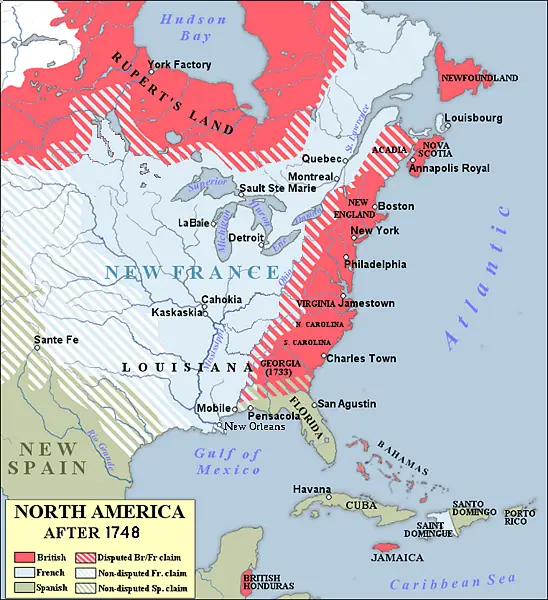
Image sourced from Wikipedia
Early Problems Faced by the Colonies
When the earliest European settlers and colonists arrived in the Americas, they faced many problems. They had come to a land that was entirely new and strange to them.
They saw and met the Native Americans but didn’t understand their language. They also attracted the indigenous peoples hostility because the native Indians saw them as conquerors and usurpers.
The early colonists had to face severe weather conditions and starvation. Many of the colonies met disaster or failure because of the bitter winter weather or lack of food.
Others were attacked and ravaged by the Native American tribes. It was only after the failure of many colonies that some of the colonies finally succeeded and became well established.
French Colonization
The French colonies in the Americas came to be known as New France. French explorers started arriving on the American continent, mostly in North America, in the 17th century.
They established a number of colonies in Canada, Acadia, Newfoundland and Louisiana. Many of these colonies were deep into Native American territory.
The French were able to establish good trade ties with the Native Indians. They exchanged goods with them in return for beaver pelts and animal hides. The Fur trade was the key French colonial concern in the region.
Spanish Colonization
Spanish colonies in the Americas came to be known as New Spain. Spain was the first European power to start colonizing the Americas.
The Spanish conquered the mighty empires of the Aztec and the Inca in a matter of years. This brought them unprecedented wealth and riches.
They established their colonies in the place of these empires in Central America. From here, they started expanding northwards into North America. They successfully established colonies in the modern-day areas of Florida, California, Texas and New Mexico.
Colonial Period – British Colonization
British efforts to explore, settle and colonize the American continent began in the 17th century. The earliest British immigrants were sent by the enterprising London Virginia Company.
These eventually established the colony of Virginia. They were followed by the Pilgrims who came to North America to escape religious persecution.
Through the 17th and early 18th centuries, many new British settlements sprang up along the eastern coast. Many of the settlements and colonies merged with each other to become larger entities.
By the late 18th century, there were 13 large British colonies which came to be known as the Thirteen Colonies.
Expansion of European colonies
The Spanish started their colonization primarily at Central America and then started expanding northwards. The French first established their settlements in the northern regions of North America and then gradually expanded towards the Midwest.
British colonies were established along the eastern coast. And they started expanding towards the west. The expansion of European colonies frequently brought them into conflict with each other.
Warfare between colonies
Warfare between different colonies was quite frequent. This was because back on the European continent, the nations were frequently at war with each other.
So the European wars often extended onto the American continent as well. The colonies also fought with each other over the control of resources such as land, rivers and ports.
The Spanish colonies were primarily Catholic while the British colonies were Protestant. Their religious differences also pitted them against each other.
Unification of British Colonies During the Colonial Period
Initially, the British colonies were individual in character and each had its own administrative system. Some were established by companies, others by individuals while some were overseen by the British crown. Slowly, the colonies expanded and grew in size as well as power and wealth.
Many colonies merged with each other to become stronger and larger. In the 18th century, the British colonies made a united effort a number of times to fight off the French, Spanish and Native American threats. This inculcated a sense of shared identity among these colonies.
Later in the 18th century, the British Empire sought to assert more authority over its American colonies. This also created a sense of unity among the colonies who opposed the taxes imposed by the Empire.
American Revolution
By 1760s, the differences between the British Empire and the Thirteen Colonies had reached a head. The Empire tried to impose new taxes but the colonies would oppose them through concerted efforts.
This ultimately led to the break out of the American Revolutionary War in 1775. The war was fought between the British forces in North America and the Thirteen Colonies.
Although the British were initially victorious, the colonists soon rallied under the military leadership of George Washington. By 1783, the Colonies had won the war and declared their independence as the United States.
Colonial Period – Birth of the United States
In 1776, the Thirteen Colonies which were established by British settlers and colonists declared their independence from the British crown. This marked the birth of the United States. Soon after its birth, US started expanding its territories.
The birth of United States also marked the end of the colonial period in North America. The newly born country soon expanded to most of the North America, ending French, Spanish and British colonial presence in all of North America with the exception of Canada.
